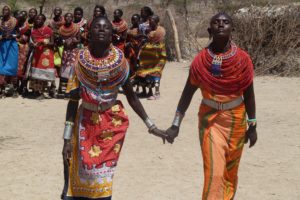Blog
HOW DO WE KNOW WHAT WORKS? LOOKING TOWARDS A COURSE IN EVALUATION
Written by Marjorie Pichon
October 28, 2019
WHAT IS EVALUATION ANYWAY?
This year, I was the lucky recipient of an LIDC bursary to attend the Short Course: Evaluation From Innovation to Impact. This course runs in London from 4 – 8 November and “aims to provide students with a comprehensive background in evaluation methods for development programmes.” But what does this mean?
I am often troubled by the ethical dilemmas in the field of global health and international development. How do we make sure that the interventions we bring to people make sense in their communities and cultures? How do we make sure that these interventions work and we aren’t just wasting time and money? What’s more, how do we develop exciting new ways of engaging hard-to-reach populations? And how do we know that people actually want things to change? These are important questions that an evaluation course can teach us to address in a methodical, and scientifically rigorous way. Evaluations give us insight into what our role is, and how we can best help change things for the better.
THE SHORT COURSE
I have a strong background in conducting systematic reviews, but in this course I will begin to fill other methodological gaps in my research skills such as economic and process evaluations. I will gain more experience in designing studies, and selecting which methods to use in which situations. In particular, I am looking forward to learning about participatory methods. In this method, study participants take an active role in contributing to the production of knowledge. They also shape the final output.
The course promises to bring lecturers in from leading international NGOs, including Oxfam GB and Christian Aid, and provide tutors from top universities and organisations including The London School of Hygiene & Tropical Medicine (LSHTM), SOAS University of London, UCL Institute of Education, and The International Initiative for Impact Evaluation (3ie). Unsurprisingly, I am incredibly excited, and grateful for the opportunity to attend!
A LITTLE ABOUT ME
I grew up in the white, liberal bubble of Seattle, Washington, in the USA, where umbrellas and coffee are everywhere, and the rest of the world seems impossibly far away. For undergrad, I attended Lewis & Clark College in Portland, Oregon, where I studied Psychology and Communications, and a professor introduced me to the field of public health. It was also during this time that I studied abroad in Kenya and Tanzania.
While studying in East Africa, I talked to locals and heard stories about how gender inequalities and violence had impacted their lives – from a host mom who was stuck in an abusive marriage because of a lack of economic opportunities, to Maasai women talking about the practice of female genital cutting in their communities. I knew that next time I came to the region I wanted to have more to offer than words of consolation.
MY INTEREST IN GLOBAL HEALTH AND DEVELOPMENT
My passion for cross-cultural experiences and health intersected with my interest in feminism. This transformed my vague desire to “help people” into a career in the field of global health. At the same time, I developed a sense of responsibility to use the privileges and the opportunities I have had for the greater good.
After undergrad, I worked in health policy research at the Institute of Medicine in Washington DC. I then moved to London to do a master’s degree in Public Health at LSHTM, and stayed on as a Research Assistant at the school’s Gender Violence and Health Centre (GVHC). In this position, I am currently studying the role that jealousy and infidelity play in intimate partner violence.
NEXT STEPS
GVHC is a very action-oriented centre. During my time there, I have had the opportunity to work on a lot of exciting projects. I hope to contribute to the evaluation of one of these projects for my PhD. I applied for the LIDC bursary to gain the skills that I would need to do a PhD. Finally I plan to use the final project of the course as a basis for my PhD proposal.
Marjorie Pichon won the LIDC bursary for the Short Course ‘Evaluation: From Innovation to Impact’. She is Research Assistant at the Gender Violence and Health Centre, London School of Hygiene & Tropical Medicine.

